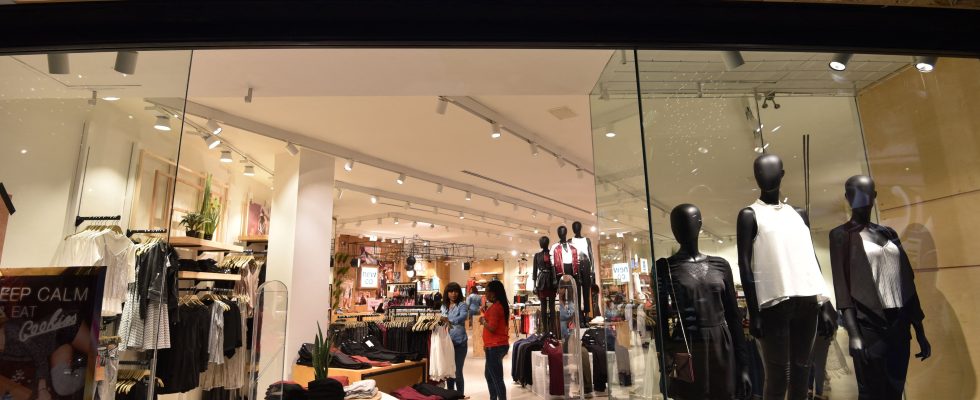The ready-to-wear business continues its descent into hell. A few days before the start of the 2023 summer sales, for four weeks, the clothing brand Don’t Call Me Jennyfer (formerly Jennyfer until May 2019) in turn requested its placement in receivership.
Founded in 1985 by Gérard Depagniat and David Tordjman, the French brand which targets young women, employs 1,112 people and has 220 stores in France and 80 internationally. It said it had achieved 301 million euros in turnover in 2022, but did not wish to communicate on its losses.
“Since the start of 2023, activity has fallen by 6%”, precise with of the world its managing director, Emmanuel Locati. At Don’t call me Jennyfer, the rise in cost and operating costs reaches “10%”, estimates Emmanuel Locati, who deplores a “scissor effect”.
Emmanuel Locati shows his confidence in the “many assets” of the sign to “bounce back” within the framework of the placement procedure in receivership. This is “not to be confused with a judicial liquidation”, he told AFP.
The request for placement in receivership, made on Wednesday June 21 to the Bobigny commercial court (Seine-Saint-Denis), “will allow us, during the six-month observation period, to work on all the possible options for preserve the company’s activity and jobs,” said Emmanuel Locati.
The managing director attributes the company’s difficulties to an unfavorable economic situation marked by “a dazzling increase in the costs” of raw materials, labour, wages, energy, rents, “combined with a rampant inflation”.
Camaïeu, San Marina… The previous ones
Consequences of Covid-19 and the closure of non-essential businesses, competition from online sales, inflation which is eating into purchasing power, rising costs of raw materials, energy and wages, boom in the second-hand: the ready-to-wear business, particularly mid-range, and footwear has been facing a succession of problems for three years that is weakening the sector and companies that are sometimes already fragile.
They are also struggling to repay state-guaranteed loans (PGE) granted during the Covid-19 crisis. For clothing, the exit from the pandemic did not mean a return to the pre-Covid-19 situation: sales remained in 2022 almost 10% lower than their 2019 level, explained last September to AFP Gildas Minvielle, director of the economic observatory of the French Institute of Fashion (IFM).
The brutal liquidation of Camaïeu in September 2022, resulting in the dismissal of 2,100 employees, shook the fashion world and marked the start of a succession of judicial liquidations (like San Marina) and legal receiverships, frozen by aid to companies. at the time of Covid-19.
Kookaï, Burton of London, Gap France, André, Kaporal… These brands which have known their hours of glory highlight the economic difficulties encountered by the ready-to-wear sector in Europe, which the Covid-19 crisis has not only accentuated.
Around 10,000 jobs gone since January
Other brands are choosing to downsize, cutting staff and closing stores, such as Comptoir des Cotonniers and Princesse Tam-Tam (Fast Retailing group) or Pimkie.
“Since the start of the year, 10,000 jobs have disappeared,” said Yann Rivoallan, president of the Federation of women’s ready-to-wear, on the sidelines of the parade of the Chinese giant of “fast fashion” SheIn , which he accuses of “destroying French jobs.” According to the French Fashion Institute, clothing consumption fell by 7.3% in May in France.
But Emmanuel Locati remains optimistic: Don’t Call Me Jennyfer “had already initiated its transformation in 2018”, after its takeover by a consortium of investors led by Sébastien Bismuth, former CEO of Undiz. “We are leaders today in France in 10-19 year olds with just over 10% market share,” he told AFP.
The brand had modernized its store base, remodeled its identity, clearly targeting young buyers via social networks. “We’ve developed significant collaborations with Gen Z thought leaders like Lena Situations, Eva Queen, McFly and Carlito.” DCM Jennyfer boasts “a very strong community” with, for example, 1.3 million followers on Instagram.
